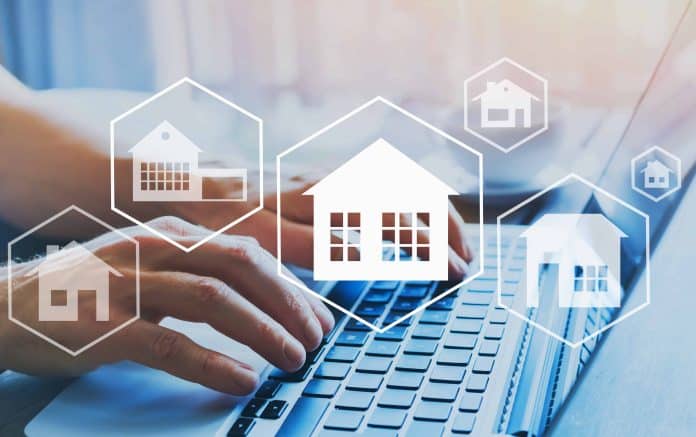
Housing can be expensive for many people. Because of this, the United States Department of Housing and Urban Development (HUD) provides services to help with finding affordable housing. Their “HUD Home Store” is one such service. It’s a government website that offers various housing options. Yet, not everybody knows about this platform or how it can help them.
Property Types Available on the HUD Home Store
Although the store specializes in HUD-approved foreclosed homes, there are other housing options available! In this case, you can search for the following things on the website:
- Homes for $1
- Good Neighbor Next Door Homes (GNND)
Consider this site to be a listing platform for HUD REO single-family properties. REO is an abbreviation for “real estate owned.” It is essentially a search engine for the general public to use when looking for HUD properties for sale. However, it’s not just useful for the general public; it’s also a great tool for state and local governments, as well as brokers, to check properties. Aside from being a listing search engine, the site also provides a platform for approved real estate brokers (plus other registered organizations). On this platform, they can place bids on the site’s properties on behalf of their clients. Overall, the site provides valuable information, such as guidance and advice, for consumers going through the home-buying process.
The properties will be evaluated before they are made available to the public. The evaluation’s goal is to determine whether the property is only available for sale to the local government or approved non-profits. These types of properties are generally located in a designated revitalization area. Nonetheless, if the property is not to be included in any special programs (such as the ones mentioned above), it will be offered based on priority. These properties will be primarily marketed to buyers who intend to use the home as their primary residence. Any unsold properties will be made publicly available following this period of focus.
HUD Foreclosed Properties
There are many housing options available on the website, but this one remains the main attraction. These homes are residential residences with one to four units that have become available due to foreclosure. To add to that, there must be a specific type of mortgage involved in the foreclosure: one that is FHA-insured. Lenders are protected from potential losses through FHA-insured mortgages. The Federal Housing Administration (FHA) is one of HUD’s divisions. Thus, when an FHA-insured mortgage is foreclosed, HUD takes ownership of the property. In this case, they will sell it to recover from any losses they have experienced.
The Selling Process of Houses
Essentially, HUD-registered real estate brokers are eligible to submit a contract for a home that is posted on the website. Brokers are mainly hired because they have a high level of expertise and understanding of the local residential real estate market. Furthermore, HUD does not have a sufficient number of employees to show properties to prospective buyers. Thus, because they don’t have enough staff, HUD finds it difficult to help with other parts of the home purchase that brokers usually handle. That is primarily why brokers are heavily involved in the process.
Real estate brokers wishing to sell these properties must complete specific paperwork. They must then submit the forms to their local HUD Homeownership Center once the paperwork is completed. Following that, HUD will assign the broker a name and an address identification number (NAID). Brokers are then allowed to advertise HUD homes, show HUD homes, and most of all, submit HUD home offers.
Let’s Talk About The Conditions of These Properties
These homes are for sale due to foreclosure. Thus, they are being sold “as-is.” This means that HUD is not responsible for any repair work or damage to property. As a result, the next homeowner will be liable for these modifications.
Good Neighbor Next Door Homes (GNND)
The HUD “Good Neighbor Next Door” (GNND) program is another option for housing assistance. To be qualified for the benefits of GNND, individuals must have an eligible profession. These are the people who are:
- Emergency Medical Technicians (EMTs)
- Firefighters
- Preschool through 12th-grade teachers
- Law Enforcement Officers
One thing this program offers is a 50% discount on a qualifying home’s listing price. The buyer of the property must live in it as their primary residence for at least 36 months in order to benefit from this opportunity. Additionally, the property must be located in revitalization zones.
You can browse the properties that are offered online through the HUD Home Store if you wish to take advantage of this program. However, there are only a few properties available on the website. The properties will also change on a weekly basis. This is due to the fact that buyers have only seven days to purchase any of the properties that are eligible through the HUD store. Follow the steps for submitting your interest in any of the properties offered by GNND. There are cases where more than one person submits an interest in the property. So to determine the winner, a lottery will be held. Also, certain requirements must be fulfilled based on the qualifying profession of the individual.
Keep in mind that the recipient of these properties will need to sign a second mortgage as well as a note for the discounted amount. However, as long as you meet the other requirements, such as staying within that residency time, there won’t be any interest or payments due.
Homes for $1
When local governments have the opportunity to buy eligible homes for $1, they can provide low-cost housing to those in need. All of this is possible because HUD allows local governments to obtain such properties. These houses become available due to foreclosure. If a property’s market value is less than $25,000 and it has been on the market for at least six months, local governments will be able to purchase it for $1.
When they get these homes, they can make necessary repairs to provide eligible people with low-cost housing. By collaborating with nonprofit local homeownership organizations, local governments are able to provide affordable housing. They could also participate in existing local programs. These community-based programs continue to sell homes to qualified residents.
To Sum Up
There are several opportunities to think about when considering home-buying options. The HUD Home Store is a fantastic resource to look into, and it’s all possible because of the U.S. Department of Housing and Urban Development. It includes listings for a wide range of properties, including:
- Houses for sale under the “Good Neighbor Next Door” (GNND) program
- Standard HUD foreclosures
- Homes through the “Dollar Home” program.
You want to make sure to review this platform when considering buying a home. When you look around, you might just find the right housing for you at a more affordable price than you expect!


















